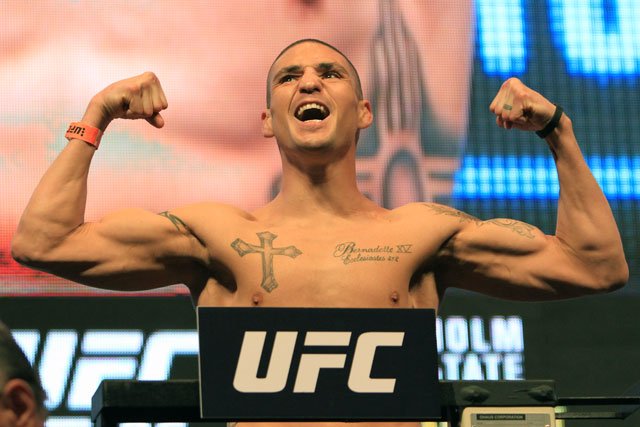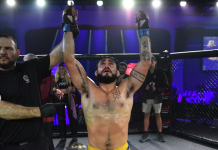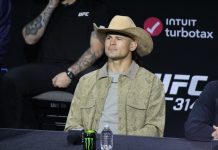
Diego Sanchez has accepted a 3-month ban stemming from a failed USADA drug test due to contaminated supplements. As the sentence is served retroactively, it has no effect on his upcoming fight at UFC Rio Rancho on February 15.
On Friday morning, the US Anti-Doping Agency (USADA) announced that UFC welterweight Diego Sanchez (31-12) had accepted a 3-month ban stemming from an out-of-competition drug test on December 12, 2019. Sanchez submitted a urine test that contained levels of ostarine and S-23, which are both prohibited substances. Sanchez provided containers of the supplements he had been using which were not certified by USADA. Although not listed on the container label, the products were found to have contained the substances that Sanchez tested positive for. It was determined that the levels would not have provided an enhancement in his performance.
Per USADA, it was confirmed that Sanchez had first been exposed to the substance on October 26. Sanchez was given a reduced suspension because he was able to prove that he had been exposed to a contaminated supplement. Due to the recent changes in USADA’s policy, Sanchez is immediately able to resume competition following his sentence should his follow-up tests show that it is no longer in his system.
In a press release Friday, the anti-doping agency said that
USADA determined that Sanchez’s exposure to these substances began on October 26, 2019, prior to the current UFC Anti-Doping Policy being announced. Although Sanchez was not using a Certified Supplement, he received a reduction to his period of ineligibility because he was able to prove that his positive test was caused by contaminated products and the very low levels detected in the products would not have enhanced his performance.
Under the current and previous version of the UFC Anti-Doping Policy, athletes may receive a reduced sanction if they prove their positive test was caused by a contaminated product, but athletes who do not use one of the Certified Supplements designated in the UFC Anti-Doping Policy in light of the clear opportunity and benefit to do so should expect to receive a lengthier sanction. Sanchez’s three-month period of ineligibility began on October 26, 2019, the date he began using the products containing prohibited substances.
Ostarine has been a frequent culprit when it comes to contaminated supplements.
As the suspension is retroactive, as of January 26 the sentence has already been completed. As a result, it has no impact on Sanchez’s upcoming fight with Michel Pereira at UFC Rio Rancho on February 15. The TUF 1 winner last competed at UFC 239 last July, losing a unanimous decision against Michael Chiesa. That loss snapped a two-fight win streak.





















